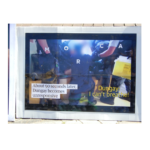What is Drug Supply?

If you are charged with drug supply, the maximum applicable penalty will vary depending on the type and quantity of the drug, and whether your case remains in the Local Court or is finalised in a higher court such as the District Court.
Being charged with supplying drugs generally means much more severe penalties than if you are found guilty of possessing an illegal drug for your own personal use.
The offence of drug supply in New South Wales
Section 25(1) of the Drug Misuse and Trafficking Act 1985 (NSW) states, “A person who supplies, or who knowingly takes part in the supply of a prohibited drug is guilty of an offence.”
The charge of drug supply can be brought where there is evidence that you were involved in the process of supplying drugs to another person.
However, it should be noted that the charge of ‘deemed drug supply’ (which carries the same same penalties as actual supply) can be brought where you are found in possession of more than the traffickable quantity of a drug, even if there is no evidence you were actually supplying the drug.
If a charge of deemed supply is brought, it will be up to you to establish that the drugs were possessed for something other than supply – eg for personal use only.
Penalties
The maximum penalties for drug supply are as follows:
Drug Type/Quantity Categories
Maximum penalties
The definition of drug supply comprises “knowingly taking part in” a wide range of activities involved in the distribution, provision and/or sale of prohibited drugs.
What does drug supply include?
Drug supply can include supplying drugs to friends without payment, sending drugs in the post, and being part of a group of people buying drugs with combined funds, selling them and splitting the proceeds.
Even if a drug that you supply doesn’t contain an illicit substance, if you have represented it as an illegal drug you can still be charged and convicted of drug supply.
Drug supply doesn’t include temporarily holding drugs for the owner with a view to giving it back to them or giving drug to someone to hold for you.
For a conviction of actual drug supply to be successful, there are a number of different factors that must be in place.
The prosecution must prove beyond a reasonable doubt that you participated in:
- Providing a substance to another person.
- That the substance was a prohibited drug. Even if just a portion of the drug was an illicit substance, it is still classified as an illegal drug.
- That you did this knowingly or believed at the time that you were supplying an illegal drug.
The severity of the offence and the likely penalty for drug supply will depend on the quantities of drugs involved.
There are predetermined quantities that have different penalties, ranging up to life imprisonment for large commercial quantities.
Charges of drug supply for less than the commercial quantity can be dealt with in the local court, where there is a maximum penalty of two years’ imprisonment.
For amounts between the indictable and commercial quantity, the prosecution can ‘elect’ (choose) to take the case to a higher court, such as the district court.
Supplying a commercial quantity of drugs can only be dealt with in the higher courts, where there are more severe maximum penalties.
Going to court for drug supply?
If you have been charged with drug supply, call Sydney Criminal Lawyers anytime on 02 9261 8881 to speak with a specialist criminal defence lawyer who is vastly experienced in defending serious drug cases.






